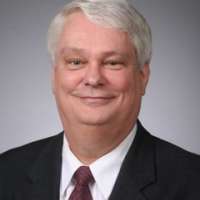
Role: Executive Director of The Pre-Trib Research Center |
Dr. Ice is Executive Director of The Pre-Trib Research Center. He founded The Center in 1994 with Dr. Tim LaHaye to research, teach, and defend the pre-tribulational rapture and related Bible prophecy doctrines.
Dr. Ice has co-authored about 30 books, written hundreds of articles, and is a frequent conference speaker. He has served as a pastor for 15 years. Dr. Ice has a B.A. from Howard Payne University, a Th.M. from Dallas Theological Seminary, a Ph.D. from Tyndale Theological Seminary, and is a Doctoral Candidate at The University of Wales in Church History. Dr. Ice lives in Justin, Texas with his wife Janice and is a member of the Chafer Theological Seminary faculty.
Passage: Matthew 13:51-52
We now approach the final two parables relating to the mysteries of the kingdom of heaven in Matthew 13. Some question whether the statement about the householder in verses 51 and 52 is a parable. It is not called a parable directly and does not use the parabolic formula that includes the word “like.” However, it does provide a lesson like the other parables and brings the entire parabolic section to an end...
As we continue our study of “mystery” in the Bible, our next New Testament passage is Romans 11:25–27. This passage occurs toward the end of Paul’s section on Israel in Romans 9–11. The “Israel section” appears to answer a question raised by the protagonist in light of the end of chapter 8, which argues nothing can separate a chosen one from the love of God (Romans 8:31–39). Paul states in Romans 9:6, “it is not as though the word of God has failed.” More precisely he declares in Romans 11:1, “I say then, God has not rejected His people, has He? May it never be!” ...
Paul again uses the term “mystery” as he closes out his theological masterpiece in Romans. Here “mystery” is associated with the gospel that Paul has grounded the Roman believers in. Interestingly, these final three verses in Romans have been totally excluded from the Majority Text. Textual critic Bruce Metzger and his committee of textual scholars believe these three verses are part of the original and almost all manuscripts include them as genuine. Following the flow of the text, it is likely that Paul would end this great Epistle with a doxological prayer in which he praises God for His magnificent plan of the gospel.
Passage: 1 Corinthians 2:6-8
1 Corinthians 2:1–10 is one of the most relevant passages in relation to the mindset of the world in which we live during the first half of the twenty-first century. The Corinthians of Greece in Paul’s day were similar to those who live in San Francisco or similar cultural environments in our day. Yet, the gospel had taken root there and Paul was writing to a group of people who were genuine believers in Christ.
Passage: 1 Corinthians 4:1
The next use of the word “mystery” is found in 1 Corinthians 4:1, just a couple of chapters after Paul’s previous reference in 2:6. There is a connection between the two passages in that Paul was speaking about God’s revelation of His plan was revealed in a mystery in 2:6. In 4:1ff Paul is speaking about being a trustworthy steward of the mysteries of God...